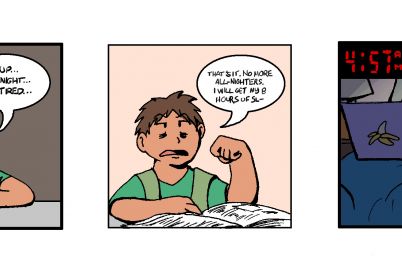
Courtesy | Jake Fuller
As the presidential race continues and the mainstream media is filled with the nonsense of Donald Trump, something else has been going on actually worth celebrating: Sunshine Week. With a name like that, it must be good right?
For more than a decade – thanks to the American Society of News Editors – journalists and advocates alike have been celebrating the right to fight for a transparent government, and show that an “open government is good government.” Every March, a week is dedicated to this joyous occasion.
Michigan’s “sunshine laws,” such as the Freedom of Information Act and the Open Meetings Act, ensure that people can have access to government documents. With more than 713,000 FOIA requests during 2015, close to the record high of approximately 714,000 in 2014, that’s nearly a million things people are demanding to know.
While the 100 agencies subject to FOIA requests managed to set their own record for the most responses, just because a FOIA was processed doesn’t mean all of the information was granted. The Summary of Annual FOIA Reports for Fiscal Year 2015, released earlier this month, reported that of the hundreds of thousands of requests, 22.6 percent were fully granted and 40 percent were partially granted. Although the summary report mentions a release rate of 92.7 percent, less than a quarter of requests were fully granted, so information is still not completely transparent and accessible.
Some questions come to mind when thinking about the amount of FOIA requests. Why are there so many? And if our government is already claiming transparency, then why is there a need to ask so much?
Ted Bridis, investigative editor for the Associated Press, provided an analysis in March 2015 in response to the record-setting number of requests made in 2014. Not only did his research find that there have been more requests than ever before, they are taking longer too.
“I think it’s a staffing and a rush problem. The numbers are way up and at the same time, the administration that has committed to transparency and committed to this process has cut the number of employees by almost 10 percent,” he said, during an interview with NPR.
While it may take the agencies longer than it should to respond, we applaud so many people who are asking for information that should be readily available to them anyway. People deserve to know what’s going on in their own country, and particularly their government.
Being aware of Sunshine Week is particularly important for student journalists. They are the ones who will be pursuing careers, constantly in search of the truth. The sunshine laws can potentially protect citizens from corrupted public bodies, and without people seeking the information, there is no one to hold accountable for the corruption. If we are to take part in the democratic process, then we are entitled to the information needed to participate effectively.
While we want to celebrate Sunshine Week, and those efforts that have gotten this movement to where it is today, there is always room to keep moving and progressing with information transparency. We have come along way as a country, but while there is still room for improvement, there are still waves to be made.
It’s great that Sunshine Week is nationally recognized every year, but don’t forget about your right to know more about your government the other 358 days.


